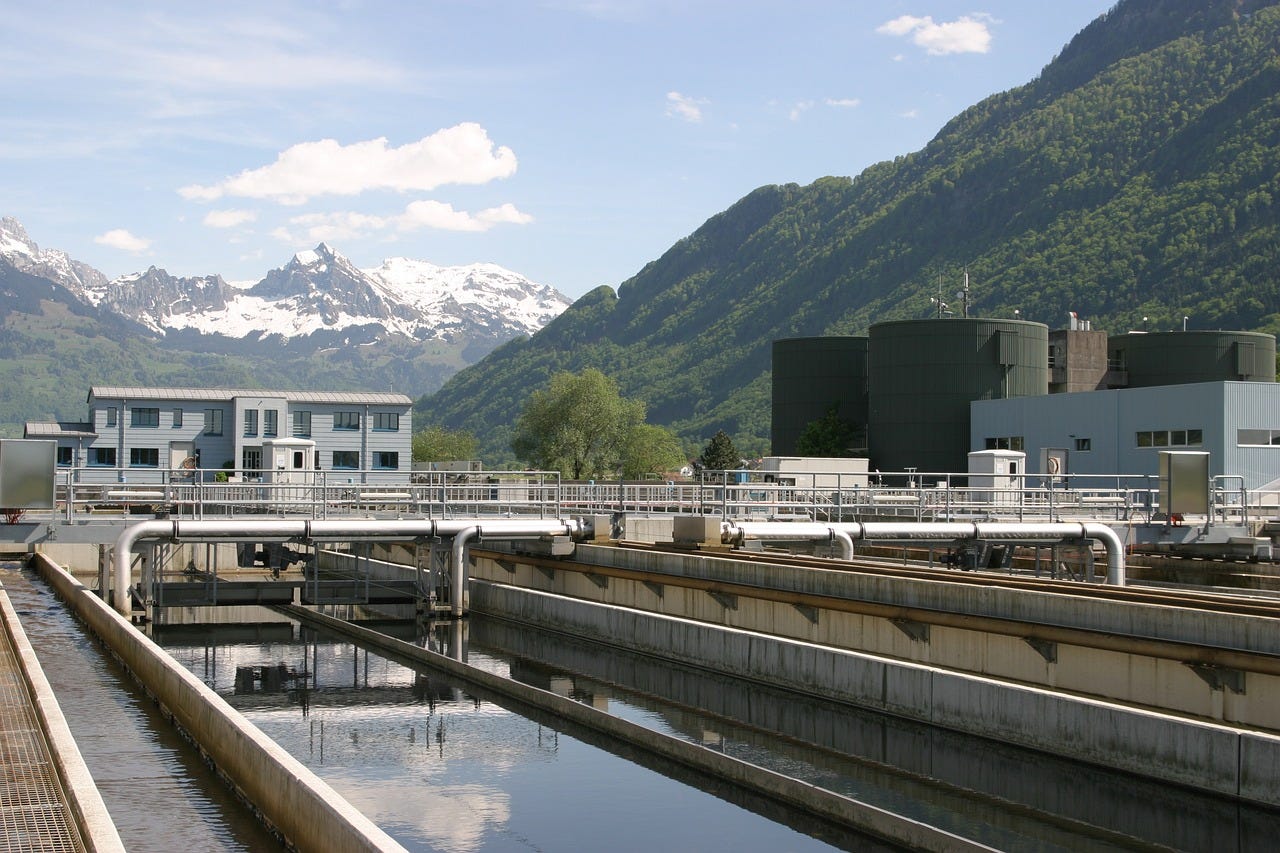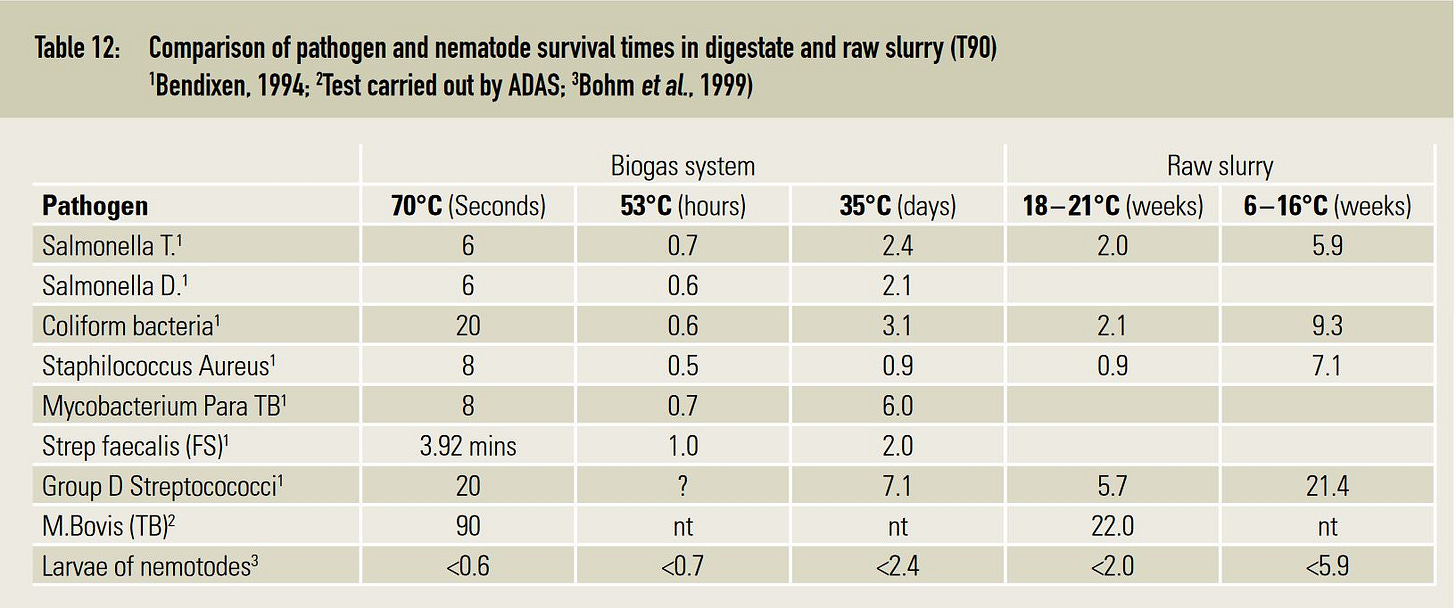I was with a friend in Istanbul a few years ago and He was telling me that the population was now more than 20 million people, the first time I visited the city there were 8 million inhabitants. We were gazing out over the Bosphoros which gleamed in the morning sun, dozens of tourists were taking photographs, capturing the beauty of the moment. All I could wonder about was where the sewage from those all the inhabitants plus the tourists went. I know that on average a person eliminates around 128 g feces per day so that totals, for the 20 million, to 2560 tonnes per day.
I’m sorry if you are in the middle of a meal but human manure is a great example of a flow!
I can’t help it really, not after all these years working as a Permacuture designer, I think in terms of flows through systems.
As so often with us human it’s not necessarily what we are doing that is wrong but the way that we do things which is flawed. Urban sewage most often flows to sewage treatment works and is then discharged into the environment somehow. In the USA about half of treated sewage is used on farmland, about 17% is incinerated and the rest goes to landfill. As Ian Dury might have said ‘what a waste!’ According to various newspapers people in the UK are often swimming in rivers and in the sea alongside untreated sewage which is usually seen as something to avoid. The centrifuging and drying that goes on in sewage treatment plants uses a lot of energy. A huge quantity of water is required by these systems to get the flow from you to the sewage works and water is an increasingly limited resource.
What we can see is a very inefficient system that uses energy rather than producing it. Which seems strange as we know that we can produce energy from such biowaste. So how would a Permaculture designer change the system?
Our objective, with any flow, is to get as many benefits from it as possible. As a product progresses through a system we will want to install subsystems that transform the product into useful byproducts. This is the fun part, deciding what subsytems to install and how each will transform the material and how we can integrate everything together. The byproducts from each subsystem flow on to further subsystems. The beauty of good design is that at each node we get more benefits, a higher overall yield. The energy required to drive the system comes from the sun and biological processes.
Biogas
I recently designed a black water treatment system for a place that has around 6 permanent residents and a flow of around 18 visitors a day during several months of the year. The residents showed no inclination to manage, on a daily basis, composting type toilets for the visitors, which frankly, I can understand!
The design required installing a macerating toilet that pumps the sewage onwards. The energy needed for the toilet coming from solar panels. The biowaste goes into a methane digestor where it will be deodorised and produce methane gas which flows into a storage unit and then on to the gas cookers in the kitchen. The residue from the biodigester flows to the vegetable gardens where it is mixed with high carbon material and fertilises the plants. If the system is well managed we can flow direct to crop plants because the anaerobic porcess plus the raised temperature kills of pathogens, gastro-intestinal worms and seeds.
The biodigester itself is very well insulated and a passive solar thermosyphon heater helps to raise and maintain the internal temperature.
The flow is relatively simple, the product only goes through two subsystems. The first produces gas and the second helps increase crop yields, crop residues and kitchen waste are chopped and added to the biodigestor.
Increasing yields and benefits
An example of a system that has more nodes is one that I designerd and installed a few years ago. The objective was to valorise the grey water coming from a shower block, a washing machine and a communal kitchen. The client wanted a reedbed type system, these are great but unfortunately they are rarely as sophisticated as they could be. In the system I designed the grey water flows into an open container filled with woodchip waste that comes from the wood turner who lives on site. The wood is high carbon and needs nitrogen to decompose which is provided by the greywater, the pause here also allows the hot water discharge from the washing machine to cool down before it goes to plants and bacteria.
The greywater then flows into an area planted with stinging nettles (Urtica dioica) where it is further treated by anaeorbic bacteria. The stinging nettles are grown to their full height and then harvested. They are layed in a retting pit where the soft matter decomposes and the fibres can be extracted. The retting water is now a great fertiliser for crop plants.
The now treated greywater then flows on into a pond which is planted with a range of aquatic plants and has some fish who control the mosquito larvae. The pond is a vital resource for a range of small animals and insects, in particular the bees who produce honey for the project. Each element in a system should have multiple functions.
All well and good but my brief explanations don’t include the essential analysis part of the design process. As a designer I need information concerning the nature of a flow, for example, what is in it? Where does it come from? Is it potentially contaminated? I also need to calculate the volume of any given flow. I need information about the system in general in order to connect a flow to it’s different parts. There is no point my designing a flow to vegetable gardens if there aren’t any!
In town
One of my favourite questions that I ask of people attending my design courses is ‘how can we deal with urban sewage?’ When we think in terms of flows we can see that dry composting toilets in high density urban areas are not a viable option They can be equipped with a urine separator but then where does the urine go? (on average 1.4 L of urine per person per day). Where will the composted waste go? Don’t forget that Istanbul produces 2560 tonnes of fecal matter per day! Can it go to local gardens? Well perhaps, except high density areas have remarkably few gardens and open spaces. There is also the hygene question, did the composting process kill of all the pathogens? It can be transported out to nearby farms but this will involve moving very large quantities mainly by road which will have negative environmental consequences
So before leaping blindly towards false solutions we can continue to analyse the flow. This will lead us to understand that around 75% of a stool is water, the rest is organic solids. Urine is around 91 - 96% water. Understanding these facts leads us to the idea that the water could be evaporated away which will massively reduce the quantity we have to deal with. Evaporating toilets can be installed relatively easily in apartments, the residue has been heated and dried out which means that fecal worms, pathogenic bacteria etc have been killed off. The dried material can more easily be used locally, if there is the space, or transported to nearby farms. Waste heat from buildings can be recycled into the system to power the evaporating toilets. The problem is transformed into a solution.
All that said, urban Permaculture is so much more than growing food on a roof or park. We are thinking about how the ‘organism’ that is a city works, what flows in, how it’s transformed and what flows out. Urban Permaculture is about having a strategic approach to redeveloping towns and cities so they work better.
That’s probably enough about poo! The approach that I’ve just writen about holds true for all the different flows through a system. Analyse it and connect it to increase total yields. As we say in Permaculture ‘total yield is only limited by the available information and people’s imagination.
A project in Africa
Some time ago I was working alongside 2 agroecologists and we were working out how to improve a farm in West Africa. They were worried about how to supply enough water to the farm and it’s residents. I pointed out that the farm had a long tamped earth road which suffered from erosion during the two wet seasons. The problem is the solution, I showed the 2 people how to design and build a structure across the road which would divert flood water into a system of micro dams and storage containers. The onward flows from these structures would flow into a series of channels, swales and half-moons. One reserve could be opened to flood water to protect the farm from the regular wildfires set by neighbours. This was done to clear undergrowth from teak plantations owned and set up by a German company to gain carbon credits.
Some of the stored water would flow into fish production units, the water containing fish excrement and azolla would flow to the garden areas. Ducks would be incorporated into the existing fish production system, their dejections helping feed the fish and thus reduce the need for external inputs. This would be supplemented with chopped vegetable waste and orange pingpong balls ;-)
The 2 agroecologists then started talking pumps at which point I pointed out that the site included a small hamlet and a school. They didn’t see the connection so I introduced them to seesaw and roundabout pumps, the children have fun playing and they pump water at the same time, the school holiday problem is avoided because quite a few children live on site. Of course the system would be backed up with a solar pump just in case. A Permaculture designer I know installed a seesaw pump for a family to take water to a rooftop tank, it worked really well for a few years and then she got a sharp letter from the parents. The children had grown up and the parents were fed up with having to play on a seesaw.
Back to the 2 agroecologists. I started to get a bit excited and got into explaining how the site‘s cattle, sheep and hens could be used to reduce the flammable load and thus the severity of wildfires. How we could capture additional rainfall from roofs. How we could improve way the farm trades it’s products. I stopped when their eyes started glazing over. A few months later someone told me that the pair of them had gone off to do a Permaculture design course which they had found to be a little bit expensive.
They should have come on one of mine which are all ‘pay what you can’. Sorry! A bit of marketing there :-)
Maybe the next article should be about urban Permaculture? Let me know what you think.








Thanks for commenting.
The power required isn't 'astronomic', for a start the material is preheated! Thse dryng tilets are to be found around the place more and more, many are passive solar powered. I installed one in a flat using with the warm drying air being drawn through via a solar chimney.
Yes UK housing stock is very poorly insulated. There are quite a numebr of initiatives studying or working on the problem. FYI my brother lives in the UK and works and builds social housing. One of the more interesting apporaches is external insulation.
When I mentioned 'power coming from the sun', I am specifically talking about photosythesis and not PV.
Customers taking control of power production, and at a local level is something I've been promoting and helping people set up for a long time now.
Thanks for the suggestion but I am well beyond baseline thinking! I should also mention that many of the things I discuss I have already tested in the field.
Thanks again!
As you asked for constructive criticism, here's mine.
I agree that we do best to avoid "leaping blindly towards false solutions", but tbh, the solution that follows is, IMO, just that. Yes, it's true that both urine and poop could be evaporated, but the power required to do so, especially in a cool temperate climate, would be astronomical. Where is this power to come from? This might be a context specific solution for the tropics but in the UK? Not a chance. Also, the idea that we can somehow harness waste heat energy from buildings to power this seems to have no basis in reality. Whilst it's true that it might be possible to retrofit some buildings to do so, the majority of the UK housing stock is not only poorly insulated, meaning heat loss is vast and not retrievable in any way, but also, not hugely suited to harvesting due to the shape and spacing of houses. Trying to retroactively convert 1930's semis for example, would be well nigh impossible as far as I can see. Given oil has peaked and that non renewable renewables provide only a fraction of the power and usability of oil, it seems to me that these are not very long lived solutions to a problem that will always be with us. Might I humbly suggest your ponderings need to go a bit further from current baseline thinking? Electricity and the trappings of so called civilisation are unlikely to always be with us. Seems to me that we need to be designing systems that will work without vast amounts of energy, whether that's in the manufacturing of evaporating loos or the powering of them.
May I also point out that referring to energy as "coming from the sun", when speaking of solar panels, is somewhat disingenuous. It comes from the sun via various extremely polluting mining and manufacturing processes, resulting in a relatively short lived product. To more accurately describe things as powered by the sun, you'd need to be referring to plants and the beings that munch on them, all part of Gaias design. It's just my opinion but to my mind, your clients would have been better advised to start taking ownership of their output. I'm mindful that the original intent of permaculture was to provide long lived/lasting solutions, which a macerating toilet, shipped in from who knows where, that cannot be easily replicated or powered, is not. There is no need for people to be so poo phobic, it's all perfectly natural. There is also no need for horrible smelly compost loos. Far better, imo, to design decent compost loo systems that will last forever. The system as described sounds great but fragile in the extreme. It's kicking the problem into the future, because at some point either the toilet will break and parts not be available/affordable or they won't have the ability to power it, at which point, they will be back to square one.